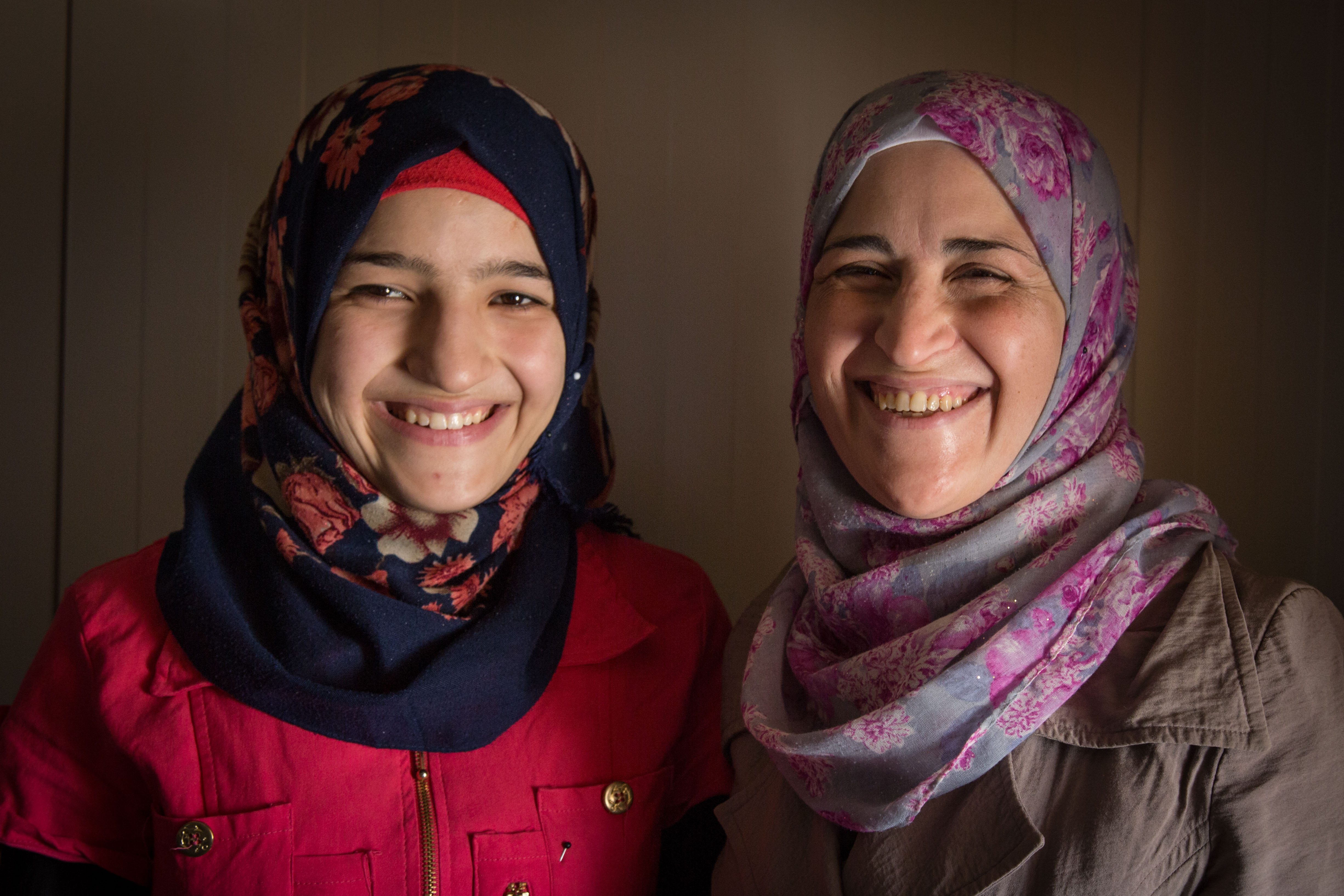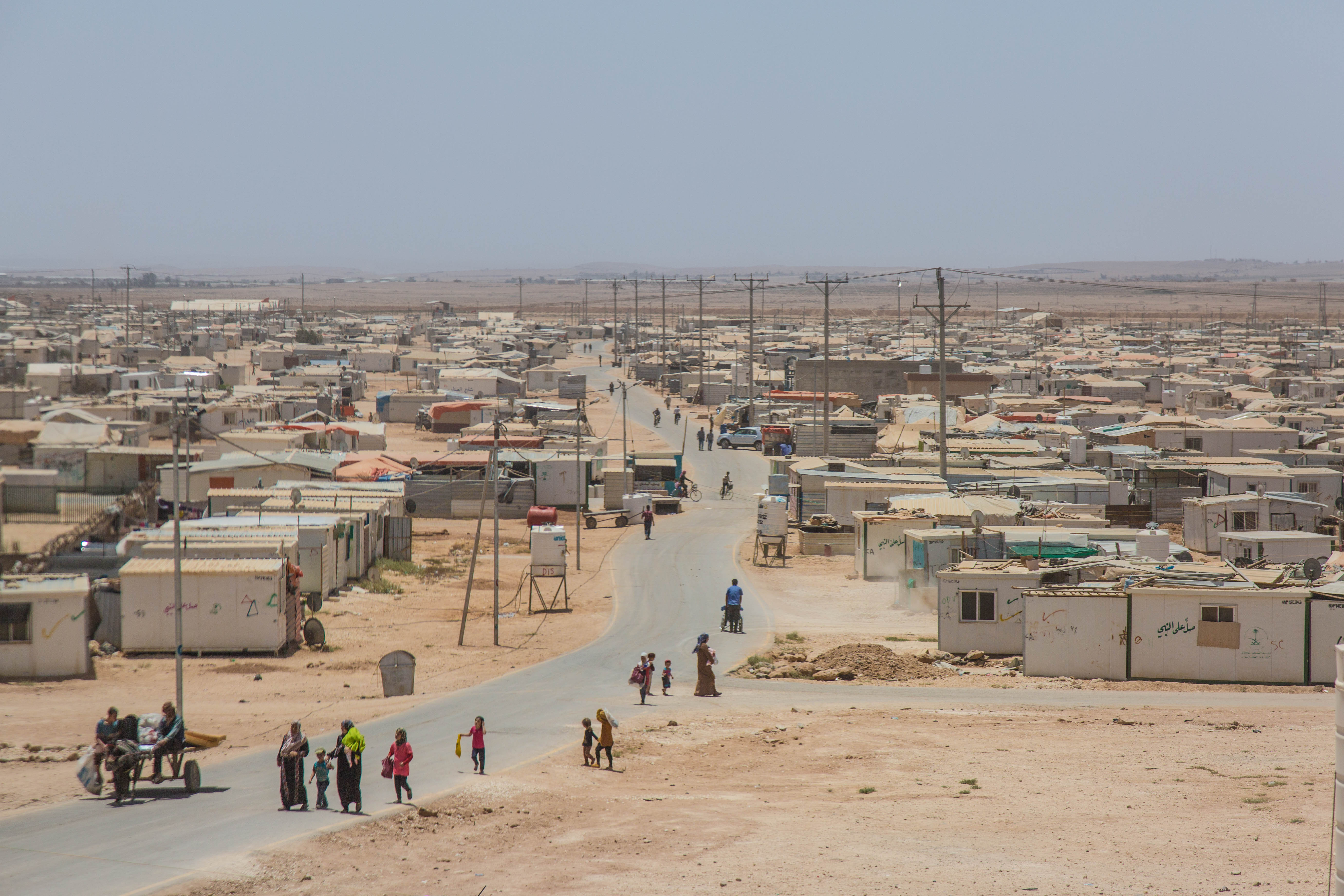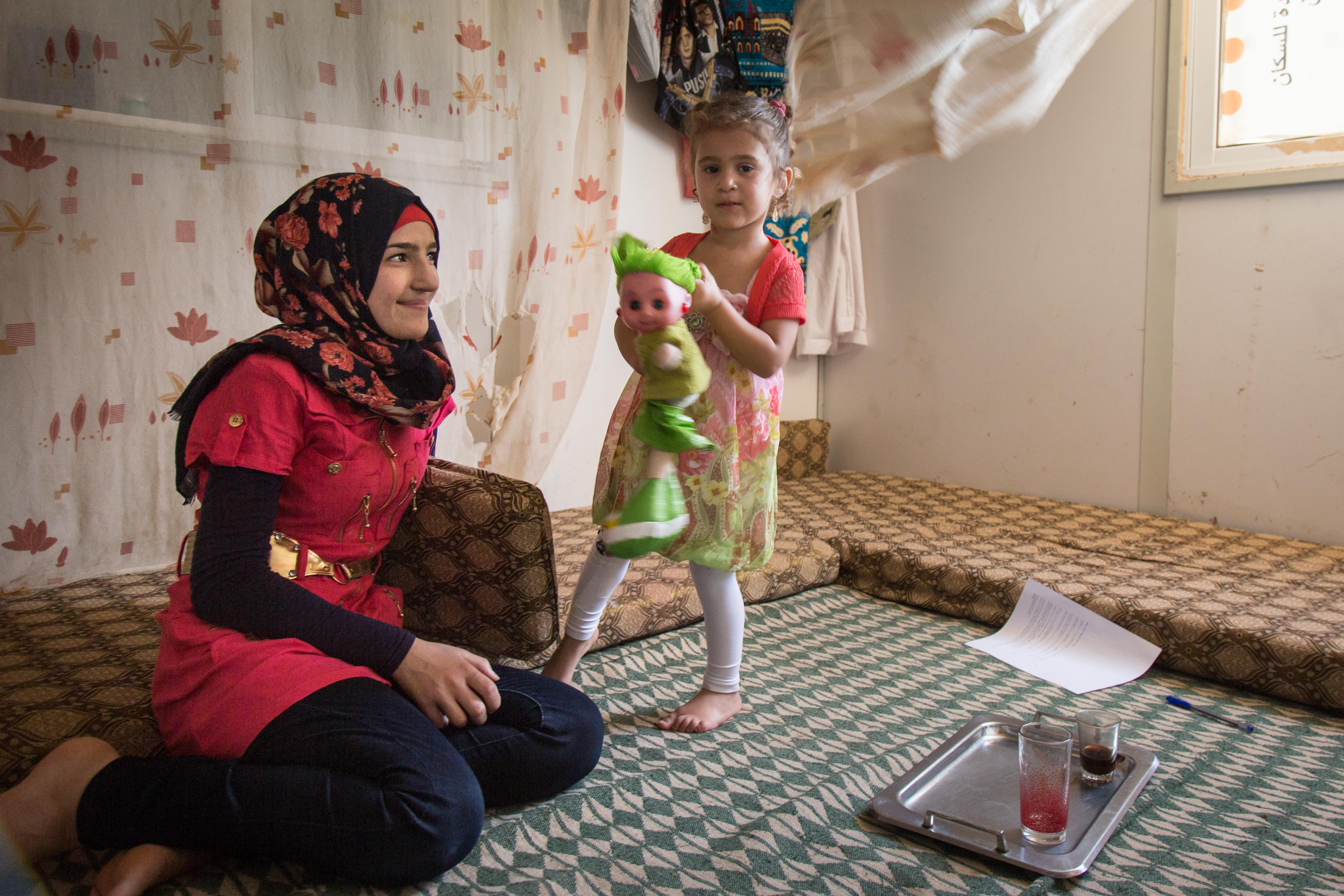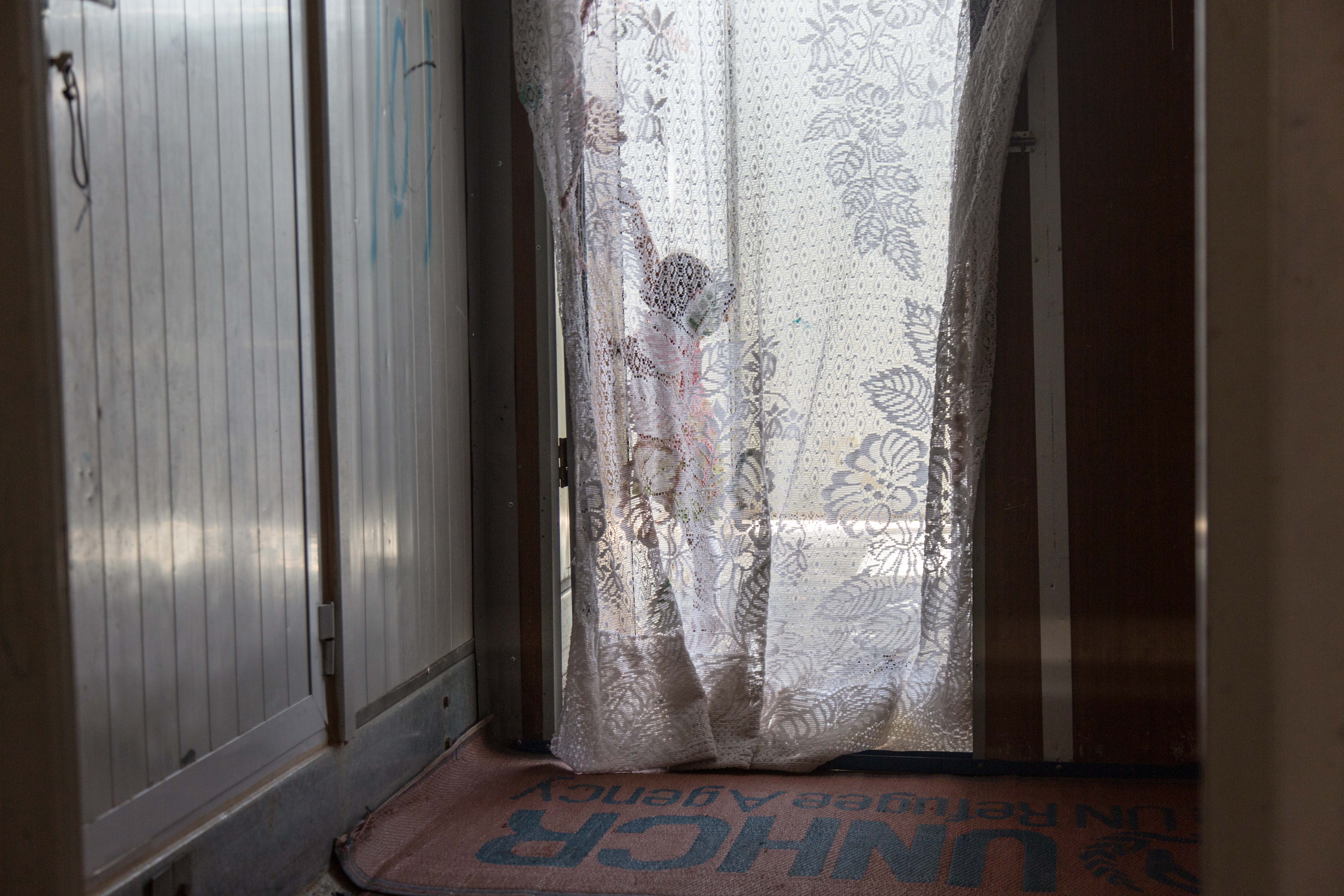Saba’s smile can brighten a whole room – or, at least, the caravan in Zaatari refugee camp in Jordan, where the 16-year-old Syrian lives with her mother and four siblings.
Eloquent and outspoken, Saba explains her opposition to early marriage, glancing at her mother, Izdihar, for support. “A girl I know got married last year when she was 15 and went to school with me. Now she is now married and is a month or two pregnant,” says Saba, whose father is still in Syria. “Three months ago, she was pregnant with twins, but had a miscarriage. I told her she should stop because her body isn’t ready yet, but she and her husband are insisting to have a child.”

Child marriage has long been accepted practice in Syria where, prior to the conflict, 13 percent of Syrian women aged 20 to 25 were married before they turned 18. But in Syrian refugee communities, the social pressure and living conditions are accelerating the rate of early marriage among young Syrian girls; mainly, say Saba and her mother, because it means one less mouth to feed in a family. “Girls back in Syria sometimes married young, too, but we see it happening much more frequently here,” says Izdihar, who married at age 19.
“They say, ‘Let the girl get married, let her husband spend on her,’” says Saba, with a sigh.

But Saba and her mother are trying to stop the trend, with help from the joint Y-Peer program between the United Nations Population Fund (UNFPA), which marks World Population Day on July 11, and Jordan’s Institute for Family Health. Working with young people around the world, the Y-Peer (Youth Peer) network gives boys and girls information about reproductive health and rights, and empowers them to share what they have learned with other young people in their community.

Saba and Izdihar are among a group of active advocates at Zaatari camp who are reaching out to young men and women, and their mothers and fathers, to explain the benefits of continuing with education and delaying married life.
“Our children must get an education,” says Izdihar. “Many youngsters in the camp do not go to school because they feel they have no future, or the chances to go to university or find a job are very slim. But several humanitarian organizations are working on allowing at least some education, and we should all grab this opportunity.”

Saba gives awareness sessions to young people her age, explaining the consequences of marriage and early pregnancy on the bodies and lives of women. She extols the advantages of delaying marriage: getting an education; having a healthier, stronger body; finding a job that fosters independence.
Her main challenges are the social and cultural differences between Syrians who now all live together in the huge camp, which houses over 79,000 refugees. Coming from different parts of Syria, with diverse cultural groups and all levels of society, many of the people Saba is trying to reach have different expectations for their daughters’ futures.

She also has to fight against the marriage fantasy that teenage girls are sold from a very young age. They often can’t see beyond the wedding dress and the party, she says.
“After the party, they will no longer see their friends, they will stop going to school, they will stop playing, being creative, drawing,” she says. “They will have responsibilities and start washing dishes.”
Her goal is to get young girls to realize the sacrifices they make – educational, financial, emotional and physical – by marrying too young. “The saddest thing I see is physical abuse,” she says. “The man being mean to his young bride.”

This photo essay was published in collaboration with the UNFPA to mark World Population Day on July 11.
- Further reading: The Syrian Kids in Lebanon Trying to End Child Marriage
